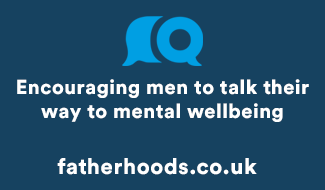All parents have a duty to safeguard their children and must act in the children’s best interests. The first consideration is whether it is thought that this bruising is consistent with the child’s age or whether it is likely to be caused by the other parent/family. Much will depend upon the age of the child, the arrangement between the parents, how long the situation has been going on and the circumstances when it began. It may be that an older child will give an indication of how the bruising arose.
The court will always safeguard the child and try, whenever possible, to ensure that a child can spend time with both parents.
If it is considered that the bruising was caused by the other parent or someone associated with them, our advice would be to take the child to the GP; a GP would be able to give some indication of when the bruising may have occurred and possibly the circumstances. That may provide some reassurance but if it is of concern there would bean independent record. It may be that a report should be made to Social Services either by the parent or by the GP.
Social Services may make recommendations about the time which the child spends with the other party to ensure that they are safe. The time which children spend with the other parent does not necessarily have to be direct- it can be indirect i.e. letters/ cards/email and telephone/video calls. In some circumstances it would be in the child’s best interests to maintain the relationship whilst the concerns are being considered. A parent can still make the child available to spend time with the parent even if not face-to-face.
If the time which the child spends with the other party has to stop, or if arrangements break down, it is likely that court proceedings will need to be considered. The court, under The Children Act 1989, adopts a non-intervention principle which means that the court will only make an order if there is a dispute, and only then if it is in the child’s best interests. Either party can make an application for a Child Arrangements Order but often it is the dissatisfied parent who would do so. A Child Arrangements Order is an order which can regulate who the child lives with and when the child should spend time with the other parent.
Making an application
The relevant application form is a C100 which would be sent to the court; a further C1A can be lodged by either part if there is a concern about risk of harm, i.e. domestic abuse, exposure to drugs or abduction. Unless the matter is urgent, mediation should always be considered as a way to resolve disputes. Areferral to mediation must take place before a court application and if mediation has not been considered, the court can halt the court process whilst mediation is attempted.
When issuing an application, the court automatically passes a copy of the application to Cafcass (Children and Family Court Advisory and Support Service), who undertake safeguarding checks of the Police and Social Services.Cafcass will also contact both parties, before the first hearing, to ascertain their position andtry and narrow the issues. Cafcass will include that information in a letter to the court, making initial recommendations about how the case should proceed. If there are safeguarding issues, the court will want to address those issues before considering suitable orders for thechild.
Section 7 report
A Section 7 (welfare) report is a more thorough report by Cafcass within which they can assess the risk and make recommendations to the court. The court will always do what is in the child’s best interest, not what parents want. The court will always safeguard the child and try, whenever possible, to ensure that a child can spend time with both parents. It is always best that you seek your own independent legal advice as the circumstances of your case are specific to you.
Posted on May 14, 2019














